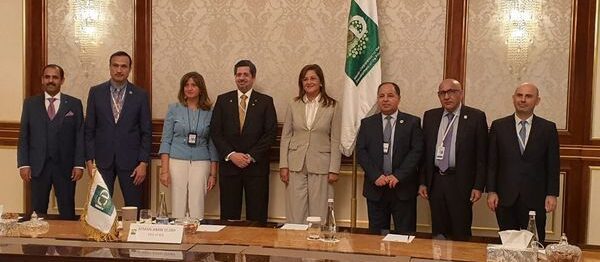Minister of Finance Mohamed Maeet affirmed that the Egyptian economy has become more capable of facing challenges and meeting the aspirations of the people, referring that it ranked second globally in the “Economist” index for the return to pre-pandemic life.
Maeet stated that this reflects the government’s success in the implementation of the economic reform programme, in a way that contributed to enabling the Egyptian economy to contain the repercussions of the pandemic.
The Egyptian minister explained, in a statement, yesterday that the last fiscal year witnessed an improvement in financial performance indicators, as the total deficit decreased from 8 per cent to 7.4 per cent, and an initial surplus of 1.4 per cent of gross domestic product (GDP) was achieved.
The minister added that all international rating institutions maintained Egypt’s credit rating with a stable outlook despite the coronavirus pandemic, which reflects its confidence in the solidity of the local economy and its ability to deal flexibly with internal and external challenges.
Maeet pointed out that President Abdel Fattah El Sisi is leading the largest development movement to change the face of life in Egypt, pointing out that the national project for the development of the Egyptian countryside, dubbed “Decent Life”, is one of the best development programmes in the world, according to the testimony of the United Nations.
The project contributes to raising the rates of economic growth that are more comprehensive and have an impact on rural people’s lives.
It leads to improving the lives of 58 per cent of Egyptians with investments exceeding 700 billion pounds within 3 years.
The minister of finance noted that there are promising investment opportunities in major national projects in Egypt that attract international development partners.
“We are continuing to stimulate economic activity and deepen the development partnership with the private sector, which contributes to achieving comprehensive and sustainable development,” Maeet said.
The minister pointed out the Egyptian government’s keenness to stimulate the investment environment, by digitising tax and customs systems to enhance governance, facilitate the business community, and expand digital transformation projects, in a way that helps integrate the informal economy and obtain the right of the state.
“In Egypt, we are keen on the stability of tax policies in the structural reforms package to attract investment,” he said.
Maeet explained that government investments during the current fiscal year witnessed an unprecedented increase of 27.6 per cent to maximise spending on development projects.
The minister said that the World Bank estimates, in a recent study, that spending on social protection programmes reached 4.2 per cent of GDP in the fiscal year 2019-2020, and that poverty rates decreased by 5.2 per cent with direct support for the neediest groups.
Maeet stressed that the Egyptian government is keen to diversify sources of funding, and that Egypt will enter the “sovereign sukuk” market in 2022, noting that investors’ demand for the first offering of green international bonds reflects their confidence in the Egyptian economy.
Maeet had participated in the annual meeting of the Islamic Development Bank Group in Uzbekistan, in the presence of the ministers of trade, planning and international co-operation, alongside representatives of the business sector and civil society; to discuss ways to advance innovation, partnerships, Islamic finance and value-added chains.
In the same context, Minister of Planning Hala el-Saeed and Minister Maeet discussed yesterday with President of the Islamic Development Bank (IsDB) Muhammad Sulaiman Al Jasser means of fostering bilateral ties.
This came on the sidelines of the 46th annual meeting of the Islamic Development Bank in Tashkent, Uzbekistan.
During the meeting, they reviewed efforts made in the enhancement of the development planning system and the implementation of the entrepreneurs’ programmes.
The ministers stressed the importance of the contribution of the IsDB to supporting the health sector and education fund in Egypt as well as Egypt’s efforts to implement women empowerment programmes.




